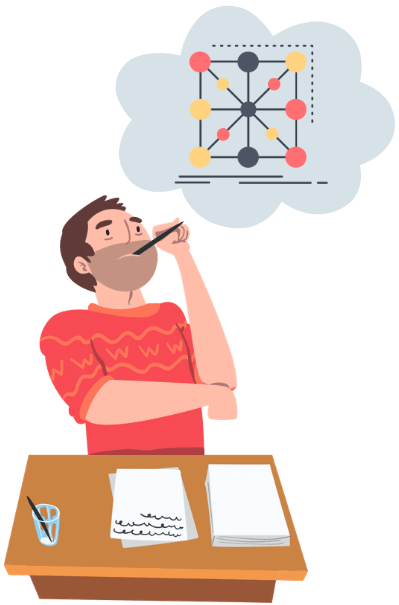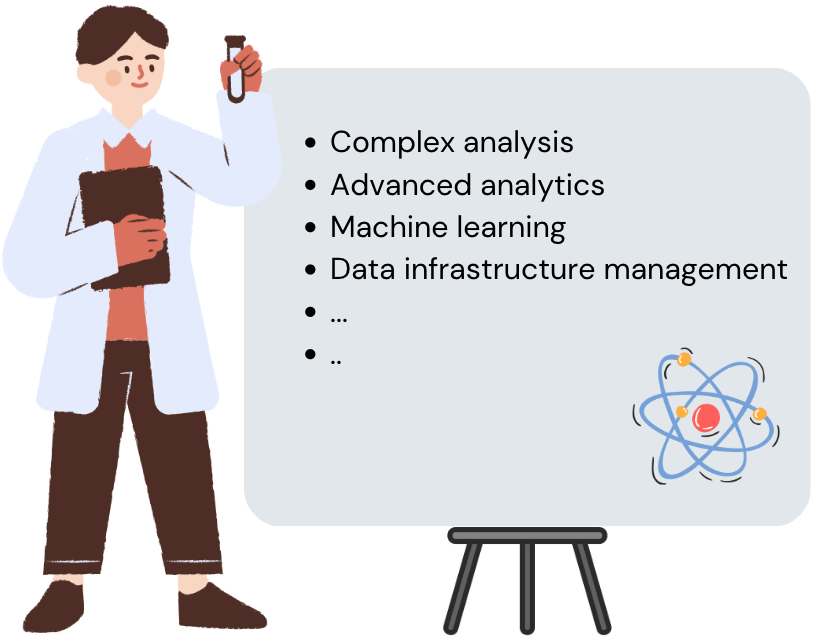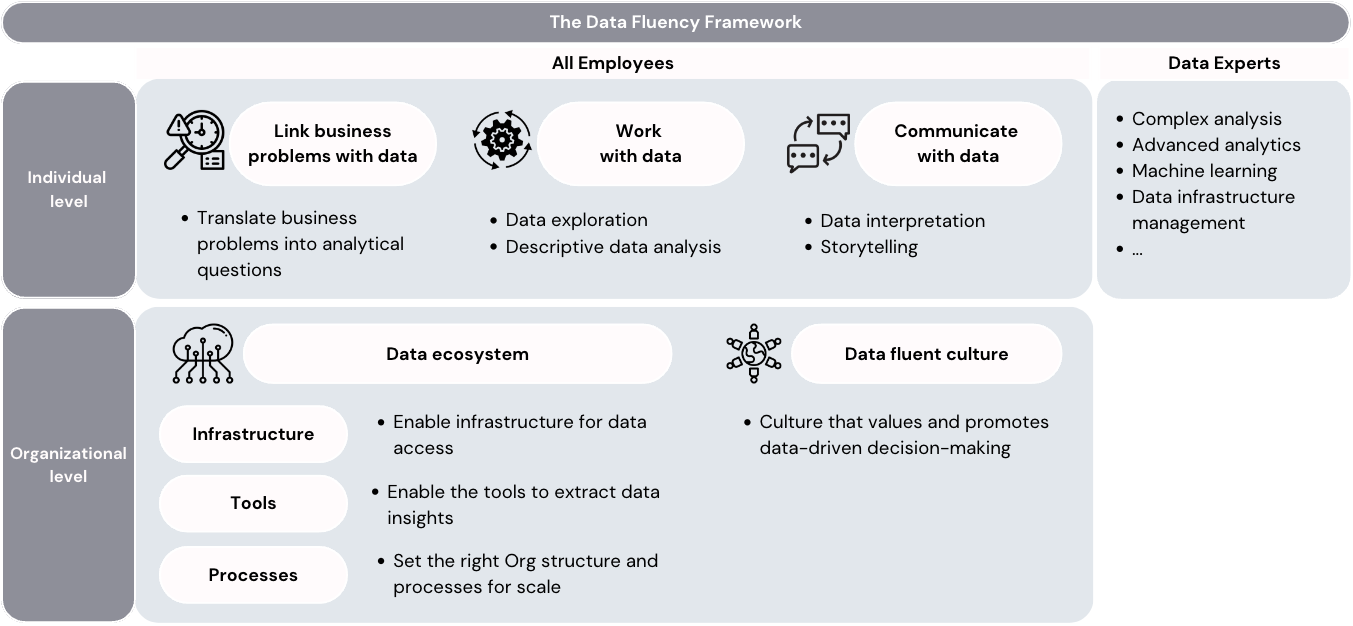Achieving data fluency
Data Fluency

Konstantinos Kattidis
Data Analytics Lead
Why do we need a framework
- It provides a structured approach for achieving data fluency
- It covers the holistic concept of data fluency that involves:
- Individual capabilities
- Organizational data culture and ecosystem

Data fluency for individuals

- Data fluency emphasizes the development of data skills among all employees
- Business users: business executives, sales representatives, marketing and operations managers
- Data experts: data analysts and data scientists
- So that they can use data to make informed decisions
Link business problems with data

- Setting measurable goals
- Identifying problems using key metrics
- Translating those problems into analytical questions
Work with data

- Data cleaning
- Performing data exploration techniques
- Data visualization
- Describing data
- Basic statistical concepts and measures
Communicate with data

- Using data storytelling effectively
- Presenting data-driven insights
- Interpreting complex data analysis results into actionable insights and decisions
The role of data experts
- Data experts such as data analysts, scientists, and engineers play an essential role
- They can handle more complex data tasks
- Their presence:
- Accelerates data-driven projects
- Provides mentorship
- Ensures industry best practices and standards

Organizational environment for data fluency

- Achieving data fluency is not only about individual data skills
- It is important to create an environment in which data fluency can flourish
The data fluent culture

- The data fluent culture represents a work environment where data is embraced, valued, and integrated into decision-making processes
The data ecosystem

- Infrastructure to provide data access and ensures data quality, security, and compliance
- Tools to collect, store, analyze, and visualize data effectively
- Processes encompass the workflows, protocols, methodologies, and organizational structures to facilitate data-related activities, collaboration, and communication
The complete data fluency framework

Let's practice!
Data Fluency

